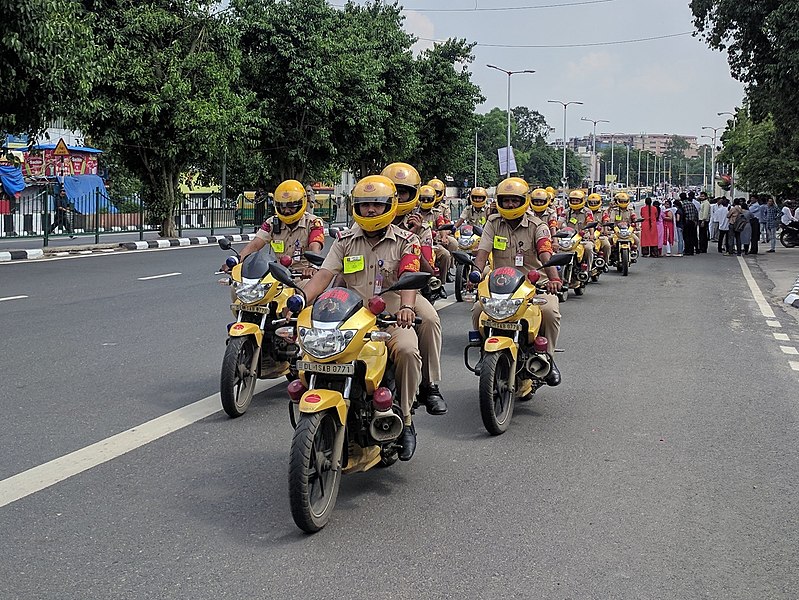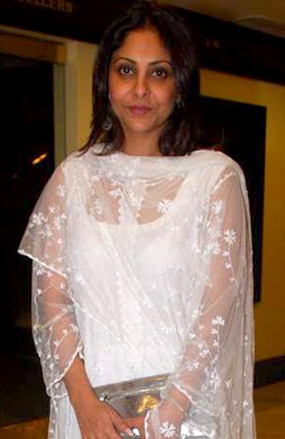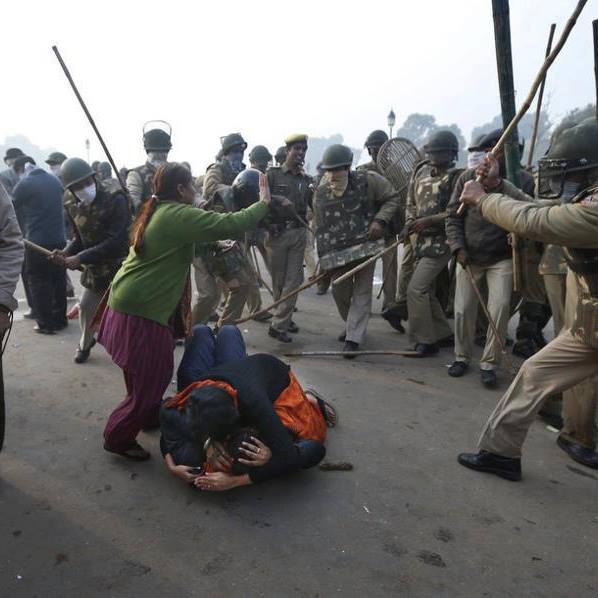Learning Hindi by Watching TV Posted by Rachael on Apr 6, 2019 in Hindi Language
As you probably know, Netflix, Amazon and other companies interested in getting in on the streaming game have been buying up English and foreign-language content left and right, in a frenzy (उन्माद/unmaad) to obtain the best and most varied array of TV shows and movies available. Hindi language content is no exception (अपवाद/apvaad). Compared to just a few years ago, there is now a staggering variety (विविधता/vividhtaa) of television shows and movies you can watch in Hindi if you’re a subscriber. And this content does not just include the typical Bollywood fare. Independent content is being produced at a rapid rate because of the growing demand (माँग/maang) for different kinds of programs, which have found an outlet on these somewhat unconventional (though now becoming mainstream) streaming services. Recently, a true crime drama show, Delhi Crime (दिल्ली क्राइम), was released on Netflix and, like other Hindi language-content available on this platform, it gives Hindi students an excellent chance to practice their Hindi listening skills and knowledge of vocabulary as well as brush up on current events and societal concerns.
When I first began learning Hindi, movies (फ़िल्में/filme, singular: फ़िल्म) were my main source of information (जानकारी/jaankaari), and I quickly became fascinated with the world of Bollywood. But, as I grew somewhat weary of Bollywood’s melodrama, I began searching for more independent content. Streaming services are now capitalizing on the growing demand for independent content and a good example of this is Delhi Crime. In this show, the protagonist (नायक/naayak), played by actress Shefali Shah, is the South Delhi DCP or Deputy Commissioner of Police Vartika Chaturvedi (based on the real life DCP, Chhaya Sharma). Sharma oversaw this area of Delhi during the Nirbhaya case, which shook India and the world when the crime (अपराध/apraadh or जुर्म/jurm) that inspired this case (मुकदमा/mukadmaa) occurred in December 2012.
Due to Chaturvedi’s quick and methodical response (प्रतिक्रिया/pratikriyaa) to the crime and her team’s tireless dedication to cracking the case and finding the criminals (अपराधी/apraadhi), the men involved in the crime were quickly apprehended and put in jail despite their attempts to flee. Speaking of her decision to take up the role of Chaturvedi in this web series and the real life DCP, actress Shah expressed the following in an interview with BBC Hindi: “एक व्यक्ति और एक महिला के तौर पर मेरे लिए निर्भया गैंग रेप रोशनी का बुझना, दर्द और यंत्रणा है. लेकिन मैंने स्क्रिप्ट पढ़ी तो लगा वो कोई और महिला थी जो पूरी लड़ाई को इंसाफ़ तक ले गई. उसने इस देश की सभी महिलाओं की लड़ाई लड़ी” (“As a person and a woman, the Nirbhaya gang rape represents the snuffing out of light (hope), pain and agony. But, when I read the script, I felt that there was another woman who brought the whole fight to justice. She fought the battle of every single woman of this country”).
The show documents the public perception of the Indian police as corrupt (भ्रष्ट/bhrasht) and lazy (आलसी/aalsee), and their immediate response to the crime was that it was the police’s fault as it could have been prevented. While it is true that the Indian police force suffers greatly from endemic corruption (भ्रष्टाचार/bhrashtaachaar), the show also documents what a day in the life of an average policeman and woman is like. From the police’s perspective, theirs is a grinding, thankless job where the pay is certainly not proportionate to the amount of risk one incurs on the job, which has the effect of making the police officer particularly susceptible to bribery (रिश्वतखोरी/rishvatkhori). While there are many bad actors in the police force who take advantage of their positions to commit unethical acts, it is also true that the police force suffers greatly from a lack of manpower, a lack of funding (several times the electricity/बिजली/bijlee is shut off in the थाना/thaanaa or police station due to lack of funds to pay the bill) and a lack of acknowledgement that a police officer, as is true of any employee, desperately needs enough money to afford a decent living situation, a means of transportation and a rest period each week to recover from their hectic and extremely stressful jobs.
The series also documents how having women in the police force, such as the female police officers depicted and Chaturvedi herself, makes a great difference (फ़र्क/fark) as issues that may not be taken as seriously by male officers are given greater attention and a sense of urgency by female officers. Despite questioning from her colleagues, Chaturvedi pursues this case with wholehearted devotion and calls on those who work for her to approach it in the same way. Although Sharma, when interviewed for the BBC Hindi article, was extremely self-effacing and humble about her role as a woman in apprehending the criminals successfully, director Richie Mehta was more direct about his praise (तारीफ़/taareef) for the DCP: “अगर महिला डीसीपी हॉस्पिटल पहुंचने वाली पहली शख़्स नहीं होती और पीड़िता को देखने का मौक़ा न मिला होता तो अपराधियों को पकड़ना आसान नहीं होता. छाया की प्रतिक्रिया बहुत ही मानवीय थी. एक महिला ने पूरे केस को लीड कर अंज़ाम तक पहुंचाया” (“If a female DCP had not been the first person to arrive at the hospital and had not gotten the chance to see the victim, catching the criminals would not have been an easy task. Chhaya’s reaction (to the victim and the crime) was extremely human. One woman led the entire case and brought it to its conclusion”).
Prior to the Nirbhaya case, rape (बलात्कार/balaatkaar) and sexual assault were especially prone to being ignored by police, but the public and devoted civil servants like Sharma urged the police to remain accountable and do their jobs to the best of their ability. This case also led to permanent changes in Indian law (कानून/kanoon) surrounding rape cases and the creation of a fast-track court to try convicted rapists. In the article, Sharma recounts her reaction to the crime as it if had happened yesterday: “एक महिला होने के नाते इस केस में मुझ पर लोगों ने भरोसा किया. जब ये रेप हुआ तो ऐसा लगा कि मेरे भीतर भी कुछ घटित हुआ है. पीड़िता की स्थिति बिल्कुल ख़राब थी और उसे देख मैं अंदर से विचलित हो गई थी” (“Because I am a woman, people trusted me with this case. When this rape occurred, it seemed as if something had happened (changed) within me. The victim’s state was horrible and, seeing her like that, I was moved from within”). She added: “अगर आप किसी और की बेटी को नहीं बचा सकते हैं तो अपनी बेटी की रक्षा क्या करेंगे? मैंने इसे तटस्थ होकर नहीं देखा बल्कि पूरी हमदर्दी के साथ देखा” (“If you can’t save someone else’s daughter, then how will you protect your own daughter? I did not look at this in a neutral light, rather I viewed it with complete sympathy”).
In the end, the show portrays that, although the police force is indeed uniquely susceptible to bribery and corruption, it also boasts supremely devoted and hardworking officers in its ranks who are capable of effecting change within an ordinarily bloated and inefficient system, although there is still a long way to go in improving the police force’s response to such crimes.

Build vocabulary, practice pronunciation, and more with Transparent Language Online. Available anytime, anywhere, on any device.







Comments:
Kurt:
Very helpful. Thank you